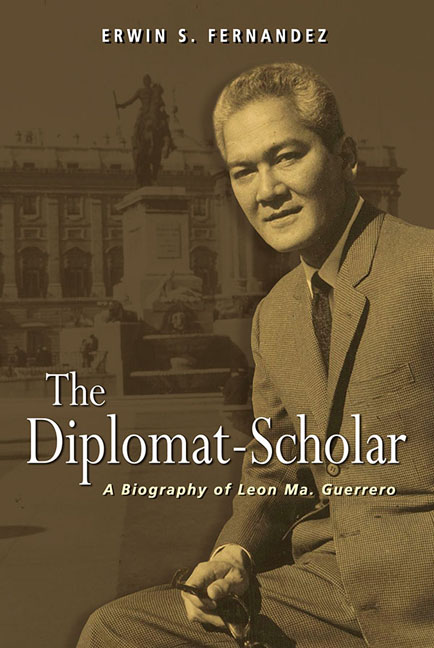Book contents
- Frontmatter
- Dedication
- Contents
- Preface
- Prologue
- Chronology
- I Ermita and Santa Cruz to Intramuros: Between Literary and Legal Career
- II To Tokyo and Back: The Making of a Diplomat
- III Going In, then Out of the Political Jungle: Padre Burgos to Arlegui
- IV London and Madrid: The Philippines in a Resurgent Asia
- V New Delhi to Belgrade: The Philippines towards Non-Alignment
- 18 Homecoming to Asia at Nehruvian India
- 19 “Diplomacy of Development” and Other Speeches
- 20 The Foreign Policy Rescuer and Again, Critic
- 21 The Diplomat as Efficient Intellectual-Bureaucrat
- 22 Endorsing Non-alignment amid Personal Crisis
- 23 Flirting with Dictators
- 24 Martial Law Propagandist
- 25 At Tito's Pre-Balkanized Yugoslavia
- Epilogue
- Glossary
- List of Abbreviations
- Bibliography
- Index
- About the Author
19 - “Diplomacy of Development” and Other Speeches
from V - New Delhi to Belgrade: The Philippines towards Non-Alignment
Published online by Cambridge University Press: 12 January 2018
- Frontmatter
- Dedication
- Contents
- Preface
- Prologue
- Chronology
- I Ermita and Santa Cruz to Intramuros: Between Literary and Legal Career
- II To Tokyo and Back: The Making of a Diplomat
- III Going In, then Out of the Political Jungle: Padre Burgos to Arlegui
- IV London and Madrid: The Philippines in a Resurgent Asia
- V New Delhi to Belgrade: The Philippines towards Non-Alignment
- 18 Homecoming to Asia at Nehruvian India
- 19 “Diplomacy of Development” and Other Speeches
- 20 The Foreign Policy Rescuer and Again, Critic
- 21 The Diplomat as Efficient Intellectual-Bureaucrat
- 22 Endorsing Non-alignment amid Personal Crisis
- 23 Flirting with Dictators
- 24 Martial Law Propagandist
- 25 At Tito's Pre-Balkanized Yugoslavia
- Epilogue
- Glossary
- List of Abbreviations
- Bibliography
- Index
- About the Author
Summary
Philippine foreign policy was the subject of Guerrero's lecture delivered before the Indian Foreign Service Probationers in early January 1967, at the Indian School of International Studies at Sapru House in New Delhi. At the outset, he observed that although the Philippines and India had rather similar problems and aims, and both had shared the benefits of democratic processes, they had enunciated different foreign policies. Regarding the foreign policies of developing countries such as the Philippines and India, he noted that each country has to solve a diplomatic problem according to their unique circumstances. He coined here the term “diplomacy of development” that Philippine foreign policymakers would later adopt.
Sources of Philippine foreign policy, he said, were uniquely different from the foreign policies of its Asian allies and neighbours. Neither inflexible nor unchanging, Philippine foreign policy was being re-examined, alluding to the latest pronouncements of President Marcos. It was a policy that was mostly concerned with Philippine relations with the United States, which he discussed by tackling the historical underpinnings of Philippine-American relations in a nutshell. The Philippines’ anti-communist stance was the result of policies taken such as having American air and naval bases in the Philippines as well as the threat of communist rebellion. He did not believe that it was possible for the Philippines to have chosen a different path by severing ties with the United States and to start anew after the war since, unlike the Germans and the Japanese, the Filipinos still left in the farm without technical skills, were unable to industrialize.
He discussed Philippine-American economic relations, particularly on the free trade, expiring in 1974. In an echo of his speech to the Manila Lions Club two years ago, Guerrero said that there was growing realization in the Philippines about the relevance of the parity rights, which aimed to help the Philippines build its shattered economy but never generated substantial American investments. Moreover, Filipinos realized that American assistance was never proportionate to Filipino loyalty and American aid was niggardly and less to the Philippines than to other countries.
- Type
- Chapter
- Information
- The Diplomat-ScholarA Biography of Leon Ma. Guerrero, pp. 233 - 240Publisher: ISEAS–Yusof Ishak InstitutePrint publication year: 2017

